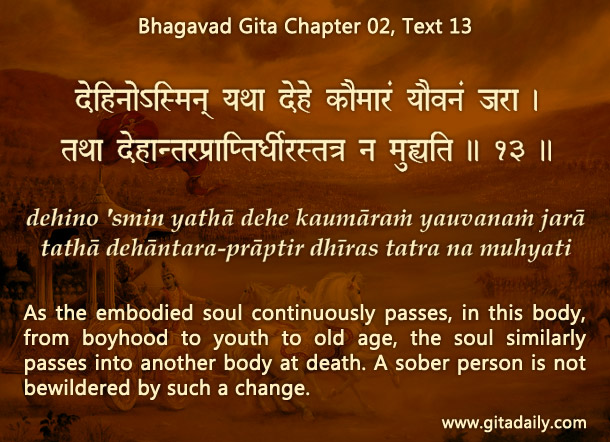Bhagavad Gita 2.13
dehino ’smin yathā dehe
kaumāraṁ yauvanaṁ jarā
tathā dehāntara-prāptir
dhīras tatra na muhyati
“As we move through childhood, youth, and old age,
So do we move beyond this life that is a stage.
To another physical body, the soul journeys on,
The wise, who know this, never feel forlorn.”
My dear Lord, it is remarkable how you ground your first teaching—spiritual wisdom—in what is a common intuition. My sense of “I-ness” doesn’t change significantly, even when my body changes substantially or even entirely. Many are the dissimilarities between my present body and the body I had as a newborn. What is it that is unchanging? Every cell in my body is constantly changing.
Please, O Lord, let me not relegate this question to times of philosophical discourse when I try to convince others about their spiritual essence. Let this question become my constant inner flashlight that helps me realize and relish my identity as an indestructible spiritual being, a precious part of you, who is unaffected by the transformation, deterioration, and eventual destruction that is the destiny of my body.
Help me to remember that you call me to a destiny far grander than the reduction to ashes or dust that awaits my body. Bless me, O Lord, so that I can embrace this glorious destiny, intrinsic to my spirituality, by molding my life choices on the foundation of your teaching about my non-material, non-temporal identity. Let me prioritize the nourishment of my soul as much as—if not more than—my prioritization of the nourishment of my body.
***
02.13 As the embodied soul continuously passes, in this body, from boyhood to youth to old age, the soul similarly passes into another body at death. A sober person is not bewildered by such a change.


Leave A Comment